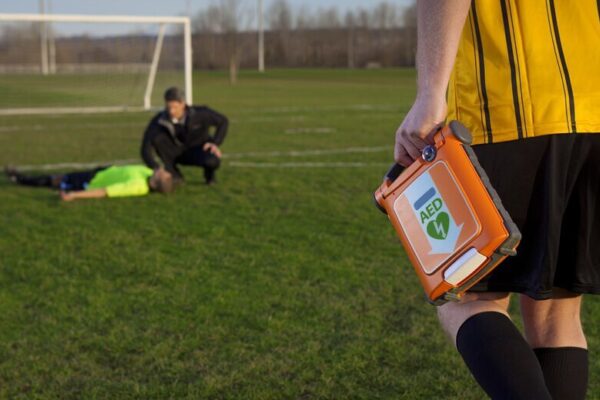cardiac arrest during sports
Again and again, young competitive athletes who are considered healthy die
Every year in Switzerland, people die of sudden cardiac death while playing sports. Almost always, ventricular fibrillation or another so-called rapid cardiac arrhythmia is to blame. The heart muscle no longer contracts synchronously, the blood circulation fails. The brain is no longer supplied with sufficient oxygen-rich blood. Unconsciousness occurs within a very short time, and without immediate countermeasures death quickly follows.
Boundaries are crossed
Sudden cardiac death can happen to anyone, but it is more common among competitive athletes - because they push themselves beyond their limits, regenerate too little and hardly train for basic endurance.
In the case of sudden cardiac death in sport, such fatal cardiac arrhythmias are most often caused by previous diseases of the heart that were not recognised in advance or were not taken sufficiently seriously. In adolescents and young adults, the so-called "hypertrophic cardiomyopathy" is at the top of the list, which can lead to dangerous cardiac arrhythmias, especially during high physical exertion. Since there are usually no symptoms in normal everyday life, this heart disease often remains undetected for a long time. In order to avoid deaths due to cardiomyopathy, it is therefore obligatory in many sports today that competitive athletes must regularly go for a sports medical examination, where such cardiomyopathies can be detected.
After the age of 35, however, such rapid cardiac arrhythmias and the resulting cardiac deaths in sport are by far most often due to CHD (= coronary heart disease), which is often colloquially referred to as "calcification" of the coronary arteries.
Sport as protection against sudden cardiac death
As exercise is one of the best ways to counteract such coronary heart disease, regular exercise is also one of the best ways to prevent sudden cardiac death from the age of 35.
The risk of sudden cardiac death may indeed increase somewhat during exercise. However, the protective effect of regular exercise clearly outweighs the risk of sudden cardiac death during exercise - so the Heart Foundation also recommends exercise as one of the best ways to reduce the risk of sudden cardiac death, provided a few simple rules are followed.
